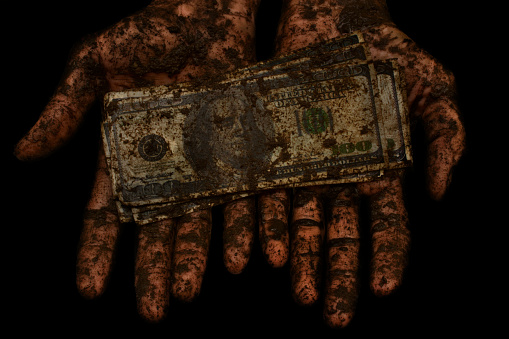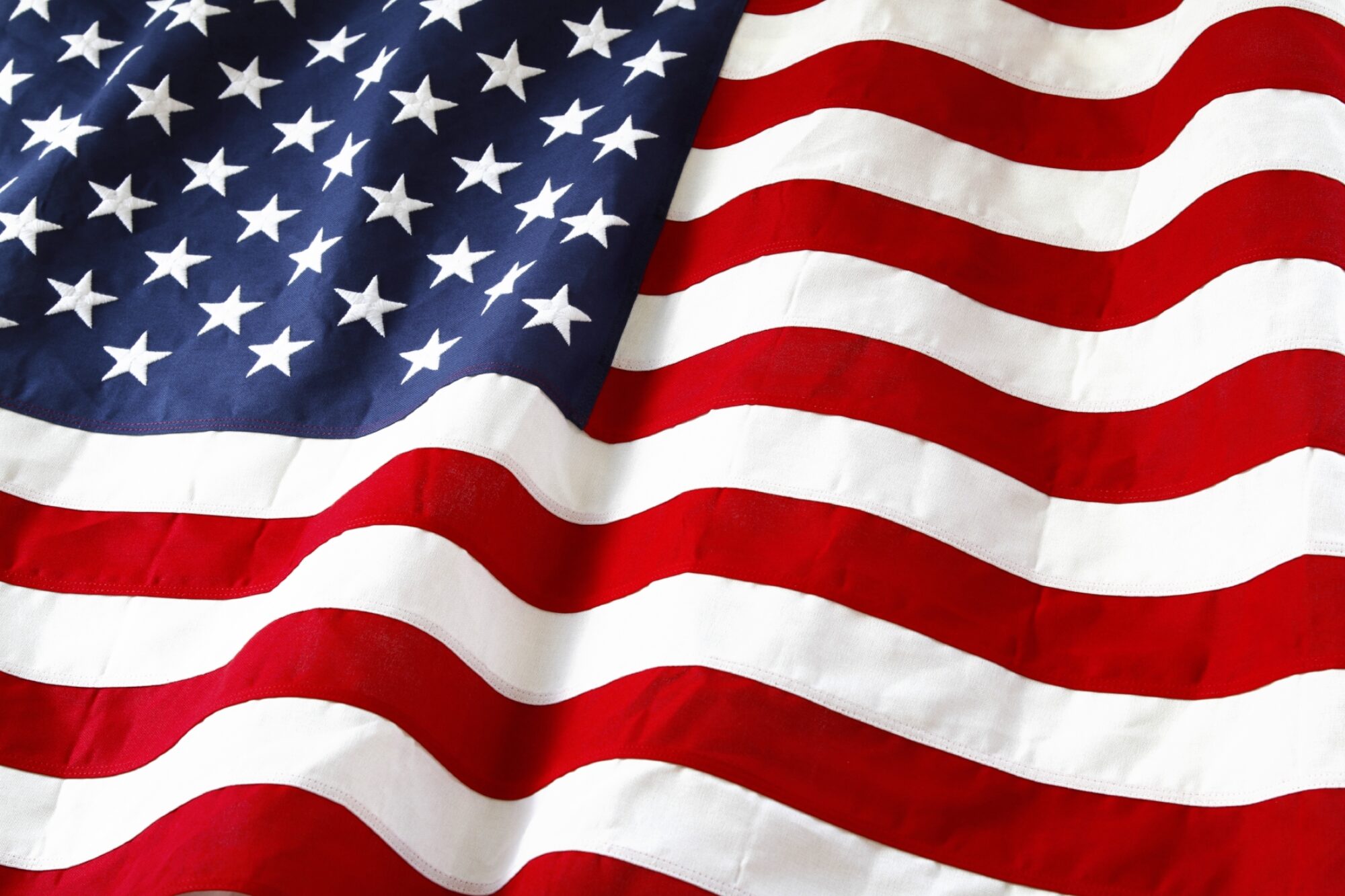
“For there are many unruly and vain talkers and deceivers . . . : Whose mouths must be stopped, who subvert whole houses, teaching things which they ought not, for FILTHY LUCRE’s sake.” (Titus 1:10-11; KJV; BOLD PRINT added for emphasis.)
More than two years ago we had another blog with an identical title, but this one is focused differently. Please review the previous blog dated June 2, 2021. We believe and are convinced that the alure of financial wealth, and the temporal security so many rely upon, is an intoxicating elixir that clouds the reality of our mortal existence and belies our eternal soul. To be ensnared in the trap of never-ending quest for wealth is a dangerous place in which to be found. We have been warned of the dangers of wealth, but being mesmerized by the temporary comforts it may provide leaves many so entrapped in a hypnotic state and unable to see beyond its momentary pleasures. Many remain addicted to the influence of money and can only survive from one fix to another. The snares of wealth are many and can lead to the wounding of one’s soul. “For the love of money is a root of all sorts of evil, and some by longing for it have wandered away from the faith, and pierced themselves with many a pang.” (I Timothy 6:10; NASB.)
We believe our great Nation is currently under the control of many who not only wield the levers of power and influence, but who have also succumbed to the hypnotic attraction of wealth, this “FILTHY LUCRE”, and what it allows one to do. Through the years, those who represent our citizens in Congress have allowed through laws enacted, and through inaction, many who have become “Rich beyond the dream of avarice” to have an inordinate amount of political control over our Nation. “Avarice” is defined as “Having more money than one could imagine, hope for, or spend the entirety of.”(idioms.thefreedictionary.com.) “The riches of avarice” are defined as “excessive or insatiable desire for wealth or gain. A more formal synonym for greed.” (Merriam-Webster.) The desire to be associated with, or to have the support of, the wealthy have infected many of our politicians with the disease of cooperation, collaboration and partnership. This has allowed the wealthy to have an exorbitant amount of control over our Nation’s affairs, including those affecting our politics.
It is extremely unfortunate that our Nation’s politics have devolved into a thirst for money to spend. More often than not, we find that TV or internet ads focus not upon a candidate’s goals, the platform upon which the candidate will run and potentially govern, but upon mudslinging accusations that may only have part of the truth shown. Sometimes outright lies and misrepresentations are aired in hopes of diminishing the opponent’s appeal. The old game of trying to make yourself look good by making the other person look bad. The whole process of bringing a candidate into the attention of a Nation is often assisted by organizations not directly aligned with the candidate, but who support the candidate in ways the candidate cannot. These organizations are known as Political Action Committees (PACs). “A Political Action Committee (PAC) is an organization that receives and disburses financial contributions to political campaigns in support of or against candidates, ballot measures, or proposed bills.” (quorum.us; Claire Miller; February 1, 2022.) PACs are tax exempt. “The first PAC was created in 1944 by the Congress of Industrial Organizations, which sought to raise funds to assist the reelection of Pres. Franklin D. Roosevelt.” (britannica.com.) There are limits to what individuals can contribute to a PAC, and how much a PAC can contribute. Large corporations and organizations can often contribute larger shares of their contributions since they can use corporate money for advertising and administrative costs. Millions of dollars are routinely thrown into campaigns by PACs. So, how does the $20 or $50 you contributed stack up to these millions of “FILTHY LUCRE” contributed by these large entities? Pathetically small.
There are other forms of contributions that directly impact our political races. Let’s talk about DARK MONEY. Groups that specialize in this form of financing use “. . . millions to shape our elections without revealing where their money comes from.” “Politically active nonprofits such as 501(c)(4)s [“social welfare” organizations] are generally under no legal obligation to disclose their donors even if they spend to influence elections.” “Opaque nonprofits and shell companies may give unlimited amounts of money to super PACs. While super PACs are legally required to disclose their donors, some of these groups are effectively dark money outlets when the bulk of their funding cannot be traced back to the original donor.” “Dark money groups have spent roughly $1 billion – mainly on television and online ads and mailers – to influence elections in the decade since the 2010 Citizens United v. FEC Supreme Court ruling that gave rise to politically active nonprofits.” “Citizens who are barraged with political messages paid for with money from undisclosed sources may not be able to consider the credibility and possible motives of the wealthy corporate or individual funders behind those messages.” (opensecrets.) So, how does your $20 or $50 contribution stack up against these groups and their “FILTHY LUCRE”? Pathetically small.
While “Hard Money”, the traditional political spending, has tightly controlled limits, “Soft Money” spending does not. “Outside spending – sometimes referred to as independent or non-coordinated spending – refers to political spending made by organizations and individuals other than the candidate campaigns themselves. All outside groups that aren’t political parties – except for a few traditional PACs that make independent expenditures – are allowed to accept unlimited sums of money from individuals, corporations or unions. With these donations, groups may engage in a number of direct political activities, including buying advertising that advocates for or against a candidate, going door to door, or running phone banks. However, these organizations are not allowed to coordinate their spending with political candidates or parties. While some outside groups – like super PACs – are required to disclose their donors, other are not. These nondisclosing organizations are referred to as dark money groups.” (opensecrets.) So, how does your $20 or $50 contribution stack up to “Soft Money” groups and their “FILTHY LUCRE”? Pathetically small.
One more group we need to mention. Political Nonprofit groups. “Nonprofit, tax-exempt groups organized under section 501(c) of the Internal Revenue Code may engage in varying amounts of political activity. Because they are not technically political organizations, they are generally not required to disclose their donors to the public. These groups, like super PACs, cannot coordinate spending with political parties or candidates, and therefore are allowed to raise unlimited sums of money from individuals, organizations and corporations.” “There are a number of types of 501(c) organizations with different structures, uses and capabilities. None of these organizations are required to publicly disclose the identity of their donors or sources of money . . . “ (opensecrets; following the money in politics.) So, how does your $20 or $50 contribution stack up against these unknown donors and their “FILTHY LUCRE”? Pathetically small.
The FREEDOM and LIBERTY our National citizens treasure is greatly impacted by these organizations and entities who often give huge sums of money, going undeclared and undisclosed. Until our leaders in Congress decide to put an end to unlimited contributions, this “FILTHY LUCRE”, from undisclosed sources, through willing organizations, we will be hard-pressed to overcome the financial benefits so many of the tyrannical, elite, oligarchs currently use to their nefarious benefit to control and undermine our great country.
